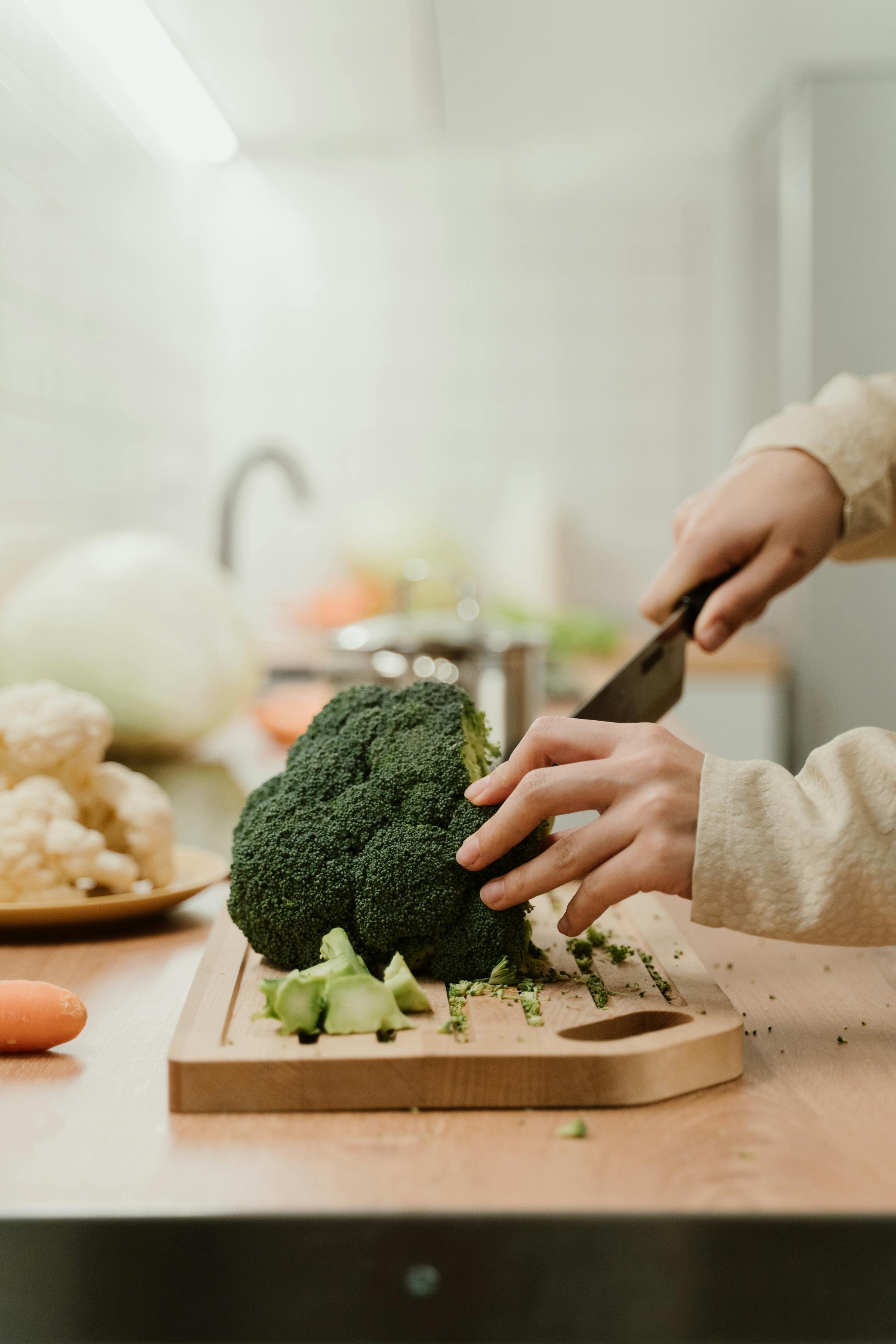How to cultivate a sustainable relationship with food
By: Mayra
A few years ago, I enrolled in a meditation retreat in the mountains of my home city in Mexico where I spent seven days in silence, going inwards, walking through the forest and gathering with the group for every meal — I looked forward to this ritual every day, where we would all meditate and practice gratitude for the food in front of us. If I could highlight something I took from those seven days, it would be how much my relationship towards food evolved from there; I went from perceiving food only as a pleasure and a necessity to opening the door of a new world that enriched my life and made every dish feel more special.
So, what is intentional eating?
At its core, intentional eating is a practice of awareness. It’s all about cultivating a mindful and personal connection with food, moving beyond “what” you eat to exploring “why” you eat and “how” you feel in the process. Unlike rigid diets or prescribed rules, intentional eating invites you to define your own values around food. These might include sustainability, ethics, health, cost, community, or even the sheer joy of eating. It’s about tuning into your body, your environment, and the story behind what’s on your plate.
Being intentional with food can look like choosing meals or food suppliers that align with your values or creating rituals that make eating feel sacred and special. Intentional eating is as unique as you are. It’s not about perfection; it’s about finding joy, meaning, and connection through the everyday act of nourishing yourself. In this blog post, I want to share a few practices I learned about intentional eating that have stayed with me.
As simple as breathing.
The first practice is simple: breathe.
Before diving into a meal, taking a moment to breathe can change your mood and nervous system. Eating is exciting because it’s delicious! Taking a few seconds to breathe and become aware of your body sensations can make the moment even more enjoyable and conscious, bringing your body into a state where it can better digest food. According to research, diaphragmatic breathing reduces stress and activates the parasympathetic nervous system, promoting relaxation and efficient digestion. A few deep breaths before eating can help you focus on the present, creating a mindful dining experience.
2. Every broccoli is a new broccoli.
Circling back to those days in the mountains of Mexico, part of the rituals around food was an invitation to try to perceive each vegetable as a unique being. We would meditate before each meal and visualize the journey food had to go through to be in front of us — from where it was grown to how it reached our table.
I’ll never forget something my spiritual teacher said one day, “You’ve eaten broccoli before, but not THIS particular broccoli.” A simple fact that blew my mind: every single thing we eat, we are really eating it for the first time. So, whenever I can, I pause a few seconds before eating my food and try to bring this truth to my awareness as vividly as possible, remembering that each bite is a one-time experience.
3. A pinch of gratitude.
Breathing before a meal, appreciating the uniqueness of each ingredient, and expressing gratitude is a simple, three-step practice that can transform your relationship with food. Gratitude, in particular, has become such a big part of how I approach my meals. It’s about pausing to acknowledge the hands that grew and prepared each ingredient and recognizing all the resources and energy behind every ingredient.
For me, this means closing my eyes and visualizing the farmers tending the soil, the sun warming the plants, and the rain nurturing the crops, then offering a heartfelt “thank you” to each step of the process. The beauty of gratitude is its adaptability; it can look as unique as you are! It can be a prayer or a brief thank you before each meal. By weaving gratitude into meals, eating becomes more than nourishment; it becomes a moment of joy and connection.
4. Share food, multiply joy.
Sharing food is one of the most timeless and universal human traditions. Whether it’s gathering around a campfire centuries ago or setting the table for friends today, sharing meals fosters connection and joy in a way few other things can. For me, it’s taken the shape of a cooking book club I joined last summer, which has since become a cherished tradition with friends. Each gathering is a new cherished memory: we try new recipes, laugh, share our stories and challenges and reflect on our different cultures and perspectives.
What makes sharing food so special, is how it strengthens bonds and creates lasting memories. Studies even back this up, showing that communal meals boost feelings of trust, cooperation, and happiness. For me, these shared meals have become more than just about the food: they are a celebration of life, community, and the simple joys of coming together.
5. Awkward truths that bring light.
I am a curious person by nature. When I started to feel called to be more intentional around food, I inevitably ended up digging the rabbit hole of food production and consumption. Documentaries like Rotten and Earthlings gave me an entirely different perspective about food and the process it takes to have a full meal in front of me. Researching about this is not comfortable, but what I’ve learned throughout the years is that behind the discomfort, the opportunity to take responsibility for our actions arises, and by owning that, we are simultaneously cultivating a deeper sense of pride and gratitude. In other words: learning and doing hard things feels good.
6. Reducing and transforming food waste.
As students, we know how hectic our schedules can get, making meal prep and cutting down on waste feel like a challenge. To help address this, Sheridan’s Office for Sustainability and Campus Services teams recently partnered with Friendlier, a company that provides reusable food containers. Sheridan students can now reduce waste generated on campus from single-use containers!
Besides using reusable containers, another budget-friendly way to support yourself and your community is by using apps that rescue good food from going to waste. These apps often partner with local cafes and restaurants to offer food at discounted prices at the end of the day. My personal favourite is Too Good To Go, where you can snag surprise bags of unsold food and enjoy delicious meals while fighting food waste.
Another approach to cultivating an intentional relationship with food and reducing our food waste is composting. This practice makes our relationship with food come to a full circle. There’s something magical about watching fruit and veggie scraps transform into rich, earthy soil (the kind that smells like a freshly rained forest). Composting isn’t limited to those with gardens; even small apartments can host DIY setups or vermicompost bins like this one from Canadian companies like Pacific Composting. Vermicomposting uses worms to break down food scraps into nutrient-rich soil, making it both fascinating and eco-friendly.
Intentional eating has transformed my life, offering a deeper connection to my body, the earth, and the people around me. If you’re curious about these practices, start small, be patient and remember: this journey looks different for everyone! Maybe it’s a small prayer before a meal, a moment of gratitude, volunteering at food banks, or learning to compost. Remember, this journey isn’t about perfection, it’s about curiosity and care. Take it one step at a time, and let the process bring more meaning and joy to your table!
Hungry for more?
The SSU is committed to providing students with exclusive discounts, coupons and promotions from great community partners around each campus, helping you keep your bank account healthy and your appetite satisfied! Check out the Student Savings and Perks available to all Sheridan Students or keep exploring food-related content from our community!











Are you feeling called to be more intentional in your everyday life? Food can be a good place to start! From aligning food with your values to creating rituals that make eating feel sacred and special, this blog post invites us to explore new practices that can add more joy and meaning to every meal. Read all about it here! ⬇️